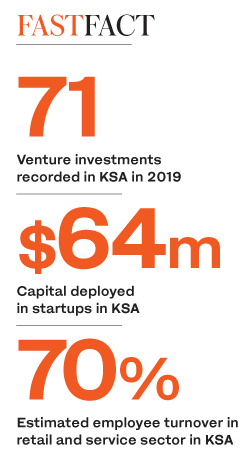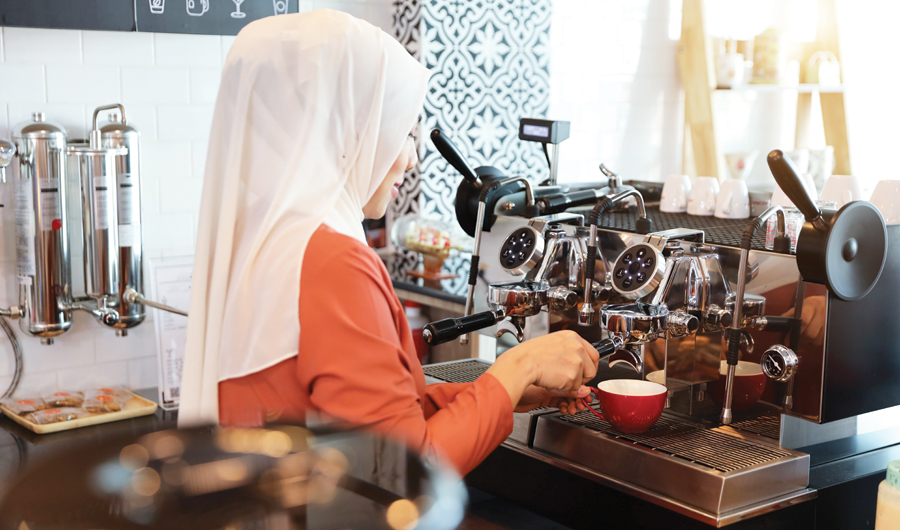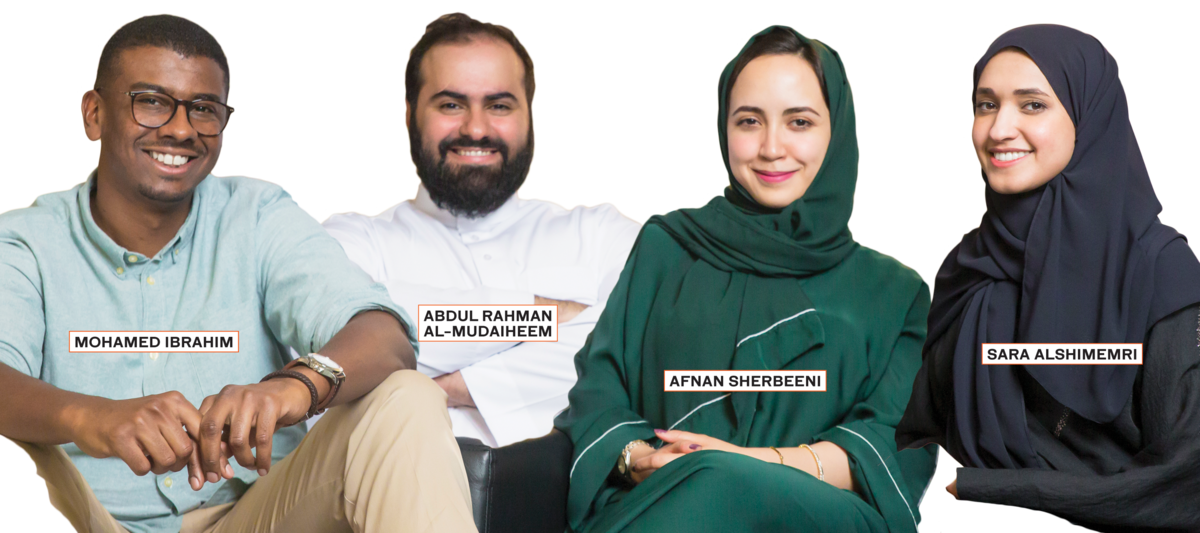DUBAI: A Saudi-based tech startup’s success in raising $1.5 million in funding has drawn attention to the strong profit potential of the business of connecting job seekers with on-demand work opportunities in the Middle East and North Africa (MENA) region.
Founded by Mohamed Ibrahim, Abdul Rahman Al-Mudaiheem, Afnan Sherbeeni and Sara Alshimemri, Sabbar enables businesses in retail, entertainment and hospitality industries to book casual staff in the Kingdom during peak hours or high seasons from a roster of pre-qualified professionals.
Since its launch in mid-2019, the “gig-economy” platform has received over 100,000 job applications from Saudi nationals and is currently connecting hundreds of workers to businesses every month.
Sabbar leverages what it calls a “proprietary engine, which builds user and role profiles, and leverages geospatial analytics” to match workers with job opportunities near them.
To date, the openings have included cashiers, baristas, sales associates and many more.
“Global trends reveal a shift towards employing more hourly workers and the gig economy is estimated to be valued at nearly $2.7 trillion by 2025,” said Ibrahim, Sabbar’s founder and CEO.
“In some developed markets, more than 40 percent of workers in the retail industry are on an hourly basis, and we are already observing similar trends in the MENA region.”
In Saudi Arabia, employee turnover is estimated at 70 percent in the retail and service industries, which adds to the financial risks.
The region also has a significant unused workforce of students. That is where Sabbar aims to bridge the gap, by leveraging technology to allow businesses to fill shifts on-demand with temporary workers.
The platform also relieves businesses from associated administrative costs by streamlining a lengthy process that typically includes interviews, training, placement, shift scheduling, worker payments and everything in between.
“We are on a mission to build and support a community of highly qualified individuals in the region that goes beyond finding flexible work opportunities,” Ibrahim said.
“We are deeply committed to helping qualified and willing workers to access immediate income-generating opportunities and secure benefits that are not typically offered to short-term workers.”
The seed round was led by Dubai-based Venture Souq and backed by 500 Startups, Derayah VC, and Super Angels from Saudi Arabia.
According to the Ibrahim, fundraising requires dedication and commitment, involving a lot of careful planning and timing to align both the organization and the investors.
“It’s one of those tasks that a founder cannot delegate and has to be handled with ultimate care to ensure a strong rapport build with the potential investors, either for this round or the next one,” he said.

“The fundraising process took almost four months — we worked really hard for it, so we are pleased to see the fruits of our labor.”
The company plans to use the money for engineering and operations teams to further develop the platform for “gig” jobs across the Kingdom, including enhancing its matching algorithm, operations automation and scheduling management.
“We are thrilled about raising this money, which is going to help us roll out our product across our target market,” he said.
“Investments and funding are crucial for the survival of startups during early stages, especially that they neither have the substantial revenues nor profitability.”
After running a digital agency for almost 10 years, Ibrahim noticed that every service company’s dream was to create their own product. But inability to scale up the service made him turn to human resources, which he was extremely passionate about.
“We decided to start doing something related to local talent and we found a very big gap in retail,” he said.
“We saw the potential of the Ministry of Labor laws regarding naturalization of these jobs and we saw a big opportunity, so we jumped ship from the service company and focused on Sabbar.
“Some of these jobs are only limited to Saudis, so businesses will struggle as there is no platform to connect them together.”
Ibrahim’s next steps involve expanding job roles and the geographic footprint. “Our model isn’t Saudi specific, it’s about local recruitment,” he told Arab News.
“Today, in the Kingdom, there is no (incentive) for local recruitment for retail jobs, mainly because there are no salary hikes. But the biggest market we are targeting next is in Egypt, followed by Morocco, because the bigger the population and the more tourism-oriented the country, the more retail, tourism and hospitality jobs there are.”
Sabbar is one of many initiatives in the Kingdom starting to bear fruit.
According to the “2019 MENA Venture Investment” report by MAGNiTT, a database for startup information across the region, 2019 was a record year for Saudi-based startups, as 71 venture investments were recorded with $64 million of capital deployed in startups in the country.
“This trend is likely to continue well beyond 2020 with multiple government initiatives, including the more than $1 billion Jada fund for SMEs (small and medium-sized enterprises), Saudi Venture Capital’s investment matching program, and the entrepreneurship hub focus of Monshaat,” said Philip Bahoshy, MAGNiTT’s founder and CEO.
He said the figures mean investment institutions funded more startups in the Kingdom last year than in any previous year, adding that half of them had never previously put their money in Saudi startups.
“The Saudi Arabian General Investment Authority continues to encourage foreign startups to relocate and set up offices in the Kingdom, and is making it easier for international investors to operate effectively to gain an operating license to deploy capital in the country,” Bahoshy said.
He describes the Kingdom as a market that has many attractive features for startup founders, including a large population with a high level of digitalization and mobile phone penetration.
“Many of the traditional industries of infrastructure, delivery, financial services and media and entertainment are all ripe for disruption to create efficiencies using technology,” he said.
“When coupled with government support, this is ideal for startup growth in the Kingdom.”


































